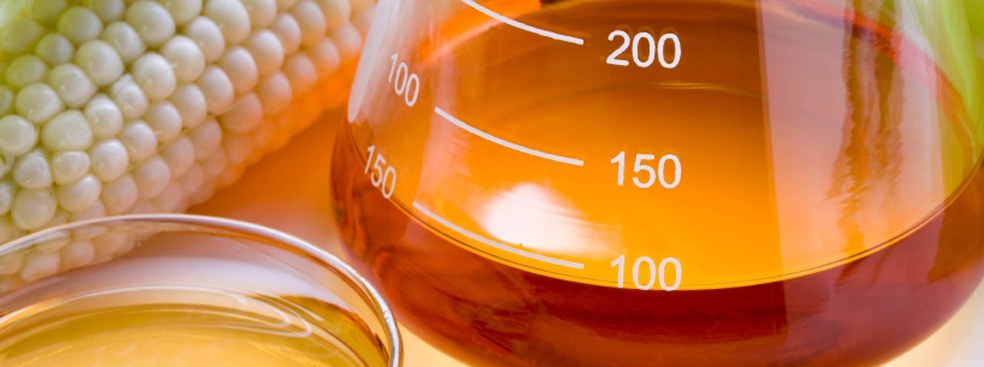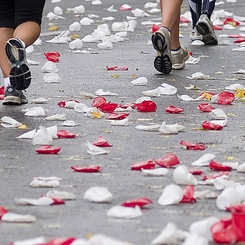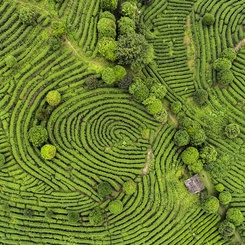Once viewed as a clean technology, biofuels today are getting a bad rap. In recent years, controversy has surrounded the issue of carbon debt associated with indirect land conversion and biofuel crops and only last month the Europe Commission announced its plans to cap biofuel production in order to meet its ambitious and admirable climate change objectives. However, r Olivier Fourcadet would warn against a too hasty a rejection: remember that when bioenergy is done well, it is truly environmentally sustainable. Let’s not throw the baby out with the bathwater.
“While biofuels are lately the focus of quite a bit of negative of attention, this is a recent development,” he says. “it’s only been in the last few years that we’ve realized that by increasing demand for biofuels, lands that were previously allotted to growing food crops were being repurposed, carrying a hefty carbon cost.”
Indeed, as technology became available in Europe to make and incorporate biofuel, Europe was in a situation of agricultural overproduction and farm revenues were falling. To reduce overproduction and improve the income of French farmers, policy makers first encouraged biofuel crops on idle land by compensating farmers. As both the price of oil and greenhouse gases emissions increased, ambitious biofuel policies were implemented throughout Europe. Four benefits were expected: reduced fossil fuel carbon emissions, increased farm revenue, reduced dependency on foreign energy sources and a lower agricultural budget. But times have changed.
Today, there is no doubt that increasing demand for biofuel is carrying with it several negative effects. Professor Fourcadet explains that there are three main concerns:
- “First, demand for biofuel crops – and their relatively high-price guarantee – has lead farmers, especially in developing countries like Indonesia, Malaysia and Brazil, to convert their food crops. This has an impact on local food security.
- Second, forested lands are being burnt back in these regions to make room for more arable land and compensate for the loss in food security. This has an impact not only on biodiversity but also on greenhouse gas levels since these deforested lands are no longer a carbon sinks.
- Finally, there is a societal impact because indigenous populations are often being displaced to make room for more arable land.”
And while it’s extremely important to take these concerns seriously, Professor Fourcadet recognizes that taking a one-sided, narrow and overly negative view of this very complex issue is also doing our environment a disservice.
The Sidelined Issue of Food Security
“What troubles me,” he explains, “is that we’re talking a lot about biofuel crops but we’re not talking enough about food production.”
Indeed, much of the biofuel debate has focused on the concept of carbon debt. In other words, if a biofuel product reduces the carbon emission of a vehicle by “x” amount, and the deforestation of an area of land for the production of biofuel reduces a carbon sink by “x” amount, how long will it take for that crop to pay back its carbon debt? The reality is that sometimes this can take up to 100 years.
“The European Commission 5% cap on biofuel integration was primarily made to limit its own carbon footprint, and I think they’re too focused on this issue. Food security and nutrition are huge issues in these developing countries. Producers are focusing on biofuel production and readily converting lands because prices are better. We have a tendency to think rich countries are the problem but I believe that the governments of producing countries need to own up to their share of the responsibility.”
And the situation gets more complex. Climate change is impacting agriculture in general and since biofuels are generally economically attractive, it tends to be the food crops that suffer this change most.
Palm oil production in Indonesia and Malaysia are in general large scale corporate/governmental productions. Their societal impact has been at the heart of much recent debate. Are populations being displaced against their will? Are producers losing their bargaining power?
“From far, it’s easy to see the negative sides of this story. But to see the big picture, we have to ask ourselves if jobs being created, if local populations are actually living better. There might be some positive aspects here that are easy to overlook.”
“Furthermore, other culprits lie behind indirect land conversion including, most notably the beef industry,” he adds. “Globally, we’re consuming more and more beef which is putting more pressure on food production. Land conversion is a bigger issue that’s related to demand in general.”
Producing More Efficiently
The European Commission 5% biofuel cap has limited future investment. That said, it’s not destroying investments that have already been made, it’s not removing production capacity that already exists. Professor Fourcadet believes there is an argument to be made for producing more efficiently and that this new regulation should in fact be encouraging us to look at the problem in a new way.
“We need to start thinking more in terms of efficiency,” says Oliver Fourcadet. “If we’re concerned that Brazil is burning back rainforest to produce biofuel crops, more efficient land use on existing plantations could at least be part of a solution.”
“Some argue that because there is no past precedence of more efficient use of biofuel production crops, that this is not a realistic goal. But there are many ways of looking at the problem. For example, what can we do with the part of the plant that remains unused in ethanol production? If we’re talking about a sunflower crop and we’re only harvesting the seeds to produce sunflower oil for either food or biofuel production, we could also be using the stocks to produce livestock meal. The European Union is indirectly encouraging better use of crops in this way.”
Biofuel, the next generation
Biofuel and related green energy solutions have a lot of future potential that can easily be overlooked. Professor Fourcadet is encouraged by the possibilities. “
Among many other options, algae as a biofuel has some very exciting potential. We can imagine that tomorrow we could free up agriculture space by growing oil-rich algae at sea to produce biofuel. This would be economically feasible and as an added bonus, algae crops would absorb carbon. This could be a reality in 20 years.”
“And this is just scratching the surface. New approaches and technologies are in constant development with the aim of changing the way we think about energy and significantly reducing our carbon footprint.









